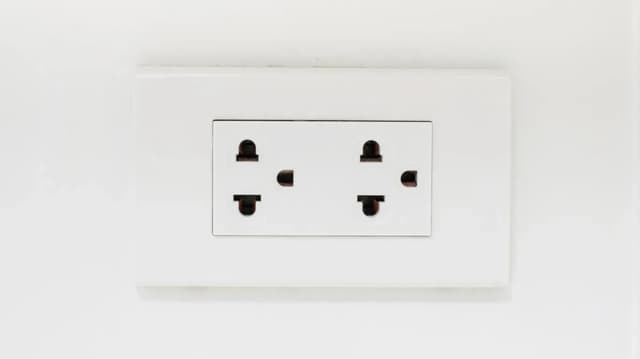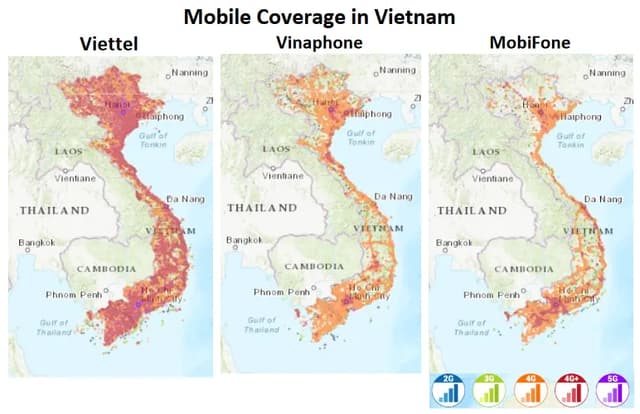Health and Safety when Traveling in Vietnam
By Admin
02/12/2024
Stay informed and prepared for your trip to Vietnam with essential health and safety tips, including vaccinations, disease prevention and emergency assistance.

When planning a trip to Vietnam, it is important to prioritize your health and safety. Here is a comprehensive guide to help you prepare:
Travel Health Notice
There are currently no notices in effect in Vietnam.
Vaccines and Medicines
Before traveling, consult your doctor at least one month in advance to discuss necessary vaccines and medications. Make sure you have routine vaccinations such as Chickenpox, Diphtheria-Tetanus-Pertussis, Influenza, MMR, Polio and Shingles.
Consider additional vaccines for common diseases in Vietnam:
- Chikungunya Fever: Recommended for travelers 65 years of age and older, especially those with underlying medical conditions, who may spend at least 2 weeks (total time) in indoor or outdoor areas with mosquitoes in Vietnam, or who are staying for extended periods of time (6 months or more).
- Hepatitis A and B: Required for all travelers, with specific instructions for infants and people with allergies. Recommended for unvaccinated travelers over one year of age traveling to Vietnam. Infants 6 to 11 months of age should also receive hepatitis A vaccine. This dose does not count toward the usual 2-dose series. Travelers with allergies to vaccine components should receive a single dose of immune globulin, which provides protection for up to 2 months depending on the dose administered. Unvaccinated travelers over 40 years of age, immunocompromised, or with chronic medical conditions who plan to travel to an at-risk area within less than 2 weeks should receive their first dose of vaccine and at the same immune globulin appointment.
- Japanese encephalitis: Recommended for long-term travelers or those visiting rural areas. Recommended for travelers Moving to an area with Japanese encephalitis to live, Spending a long period of time, such as a month or more, in areas with Japanese encephalitis, Traveling frequently to areas with Japanese encephalitis. Consider vaccination for travelers: Spending less than a month in areas with Japanese encephalitis but engaging in activities that increase the risk of infection, such as visiting rural areas, hiking or camping, or staying in places without air conditioning, mosquito nets, or bed nets. Traveling to areas with Japanese encephalitis without being sure of their activities or how long they will be there. Not recommended for travelers planning short-term travel to urban areas or traveling to areas without a clear Japanese encephalitis season.
- Malaria: Prescription medication is recommended for certain areas. We recommend that travelers to certain areas of Vietnam take prescription medication to prevent malaria. Depending on the medication you take, you will need to start taking it several days before your trip, as well as during and after your trip. Talk to your doctor about which antimalarial medication you should take.
- Measles: Ensure up-to-date vaccinations, especially for international travelers. Measles cases are increasing worldwide. Travelers are at risk of measles if they have not been fully vaccinated at least two weeks before departure or have not had measles in the past and are traveling internationally to areas where measles is currently endemic. All international travelers should be fully vaccinated with the measles-mumps-rubella (MMR) vaccine, including an early dose for infants aged 6–11 months
- Rabies: Consider pre-exposure vaccination if participating in activities that may involve contact with animals. Dogs infected with rabies have occasionally been found in Vietnam. If exposure to rabies occurs while in Vietnam, rabies vaccine is generally available in most areas of the country. Considerations for pre-exposure vaccination include whether the traveler 1) will engage in occupational or recreational activities that increase the risk of exposure to potentially rabid animals and 2) may have difficulty obtaining prompt access to safe post-exposure prophylaxis. Please consult with your healthcare provider to determine whether you should receive pre-exposure vaccination prior to travel.
- Typhoid: Recommended for most travelers, especially in rural areas.
Diseases that cannot be prevented by vaccines
Be aware of diseases such as Leptospirosis, Schistosomiasis, Chikungunya, Dengue, Zika, Avian Flu, Hantavirus, and Tuberculosis. Practice safe behaviors to avoid these diseases, such as staying away from contaminated water, preventing insect bites, and staying away from people who are sick.
Stay healthy and safe
- Food and water safety: Food and water standards in Vietnam vary by destination. Standards can also vary within a country, and risks may vary depending on the type of activity (e.g. hiking versus business travel). Read other iGuide.ai guide articles for details on safe consumption and avoiding untreated water.
- Prevent insect bites: Use insect repellent, wear protective clothing, and sleep in areas with mosquito nets. Insects (such as mosquitoes, ticks, and fleas) can spread a number of diseases in Vietnam. Many of these diseases cannot be prevented with vaccines or medications. You can reduce your risk by taking steps to prevent insect bites.
- What can I do to avoid insect bites?
- Cover exposed skin by wearing long-sleeved shirts, long pants, and hats.
- Use appropriate insect repellent (see below).
- Use clothing and gear treated with permethrin (such as boots, pants, socks, and tents). Do not use permethrin directly on skin.
- Stay and sleep in air-conditioned rooms or rooms with curtains.
- Use a bed net if the area you sleep in is exposed to outdoor air.
- What type of insect repellent should I use?
- FOR PROTECTION AGAINST TIKS AND MOSQUITOES: Use insect repellent containing 20% DEET or more for protection that lasts for several hours.
- FOR MOSQUITO PROTECTION ONLY: Products containing one of the following active ingredients may also help prevent mosquito bites. Higher percentages of active ingredients provide longer lasting protection.
- DEET
- Picaridin (also known as KBR 3023, Bayrepel and icaridin)
- Oil of lemon eucalyptus (OLE) or para-menthane-diol (PMD)
- IR3535
- 2-no image
- Always use insect repellent as directed.
- What should I do if I get bitten by an insect?
- Avoid scratching insect bites and apply hydrocortisone cream or calamine lotion to relieve itching.
- Check your entire body for ticks after outdoor activity. Be sure to remove ticks properly
- What can I do to avoid bed bugs?
- Although bed bugs do not carry disease, they are a nuisance. See information page on how to avoid insect bites for some easy tips to avoid them. For more information about bed bugs, check out Bed bugs.
- For more information on how to avoid insect bites, see Avoid insect bites.
- Some diseases in Vietnam—such as dengue fever, Zika, and heartworm—are transmitted by insects and cannot be prevented by vaccines. Take the insect-avoidance measures described above to prevent these and other diseases.
- Outdoor Safety: Prepare for changing weather, use sunscreen and stay hydrated. Your travel plans in Vietnam will always include outdoor activities, take these steps to stay safe and healthy during your trip.
- Pay attention to changes in weather and adjust plans if conditions become unsafe.
- Prepare for activities by wearing appropriate clothing and carrying protective items such as bug spray, sunscreen, and a basic first aid kit.
- Consider learning basic first aid and CPR before you travel. Pack a travel medical kit with items appropriate to your activities.
- Heat-related illnesses, such as heatstroke, can be fatal. Eat regularly, wear loose, lightweight clothing, and limit physical activity in hot weather.
- If you are outside for long hours in hot weather, eat salty snacks and drink water to stay hydrated and replace salt lost through sweat.
- Protect yourself from UV radiation: use sunscreen with an SPF of at least 15, wear protective clothing, and seek shade during the hottest part of the day (10 a.m.–4 p.m.).
- Be especially careful during the summer months and at high altitudes. Since sunlight reflects off snow, sand and water, sun exposure can be increased during activities such as skiing, swimming and boating.
- Extreme cold can be dangerous. Wear layers of clothing and cover your head, arms, and legs carefully if you are going to a cold place.
- Water Safety: Swim in designated areas and avoid swallowing water.
- Swim only in designated swimming areas. Obey lifeguards and beach warning flags.
- Practice safe boating—follow all boating safety laws, don't drink alcohol if you're boating, and always wear a life jacket.
- Do not dive into shallow water.
- Do not swim in fresh water in developing areas or where sanitation is poor.
- Avoid swallowing water while swimming. Untreated water can carry bacteria that can make you sick.
- To prevent infection, wear shoes on beaches where animal waste may be present.
- Leptospirosis, a bacterial infection that can be spread through fresh water, is found in Vietnam. Avoid swimming in fresh, unchlorinated water, such as lakes, ponds, or rivers.
- Animal Safety: Avoid contact with unfamiliar animals and seek medical attention if bitten. Most animals stay away from humans, but they may attack if they feel threatened, are protecting their young or territory, or are injured or sick. Animal bites and scratches can lead to serious diseases such as rabies.
- Follow these tips to protect yourself:
- Do not touch or feed any animals you don't know
- Do not let animals lick open wounds and do not let animal saliva get into your eyes or mouth.
- Keep away from rodents and their urine and droppings.
- Pets traveling must be closely supervised and are not allowed to come into contact with local animals.
- If you wake up in a room with a bat, seek medical attention immediately. Bat bites can be difficult to see.
- All animals can pose a threat, but be extra careful around dogs, bats, monkeys, sea animals like jellyfish, and snakes. If you are bitten or scratched by an animal, immediately:
- Wash the wound with soap and clean water.
- See a doctor immediately.
- Consider purchasing medical evacuation insurance. Rabies is a deadly disease that requires prompt treatment.
- Minimize exposure to germs: Follow these tips to avoid getting sick or spreading illness to others while traveling:
- Wash your hands frequently, especially before eating.
- If soap and water are not available, clean your hands with an alcohol-based hand sanitizer (containing at least 60% alcohol).
- Avoid touching your eyes, nose, or mouth. If you need to touch your face, make sure your hands are clean.
- Cover your mouth and nose with a tissue or your sleeve (not your hands) when coughing or sneezing.
- Try to avoid contact with people who are sick.
- If you are sick, stay home or in your hotel room unless you need medical care.
- Avoid spreading body fluids: Diseases can be spread through body fluids, such as saliva, blood, vomit, and semen. Protect yourself:
- Use condoms properly.
- No injections.
- Limit alcohol consumption. People are at greater risk when they are drunk.
- Do not share needles or any instrument that can break the skin. This includes tattoo needles, body piercing needles, and acupuncture needles.
- If you receive medical or dental care, make sure the equipment is sterilized or cleaned.
- Know how to get medical care while traveling. Plan how you will get medical care while you travel, if you need it:
- Bring a list of local doctors and hospital on site, or access to List of reputable medical facilities in Vietnam.
- Review your health insurance plan to determine what medical services are covered during your trip. Consider purchasing travel health insurance and medical evacuation insurance.
- Carry a card stating your blood type, chronic medical conditions or serious allergies, and the generic names of any medications you are taking in the local language.
- Some prescription medications may be illegal in other countries. Call your Vietnamese embassy or consulate to verify that all of your prescriptions are legal to carry. You can find list of embassies or consulates latest at iGuide.ai
- Bring all medications (including over-the-counter medications) that you think you might need during your trip, including backup medications in case of travel delays. Ask your doctor to help you get a prescription ahead of time if you need it.
- Choose safe means of transport
- Walk
- Be careful when walking.
- Use sidewalks and crosswalks with marked pedestrian crossings.
- Be aware of traffic around you, especially in crowded areas.
- Remember, pedestrians do not always have the right of way in other countries.
- Drive
- Choose a safe car.
- Choose official taxis or public transport like trains and buses.
- Only ride with seat belts.
- Avoid overcrowded, overloaded, heavy-roofed buses and vans.
- Avoid riding motorbikes or taxis, especially motorbike taxis. (Many accidents are caused by inexperienced motorbike drivers.)
- Choose newer cars because they may have more safety features, such as airbags, and are more reliable.
- Choose larger vehicles because they can protect you better in a collision.
- Think about the driver.
- Do not drive after drinking or ride with someone who has been drinking.
- Consider hiring a driver who is licensed, trained, and familiar with the area.
- Payment before departure.
- Practice basic safety tips.
- Always wear your seat belt.
- Sit in the back seat of cars and taxis.
- When riding a motorbike or bicycle, always wear a helmet. (Bring a helmet from home if necessary.)
- Avoid driving at night as street lighting in rural Vietnam can be poor.
- Do not use mobile phone or text while driving (illegal in Vietnam).
- Travel should only be done during the day, especially in rural areas.
- If you choose to drive in Vietnam, learn the local traffic laws and have the appropriate paperwork.
- Get any driving licenses and insurance you may need. Get an International Driving Permit (IDP). Always carry your IDP and your country-issued driving license.
- Check your auto insurance policy's international coverage and purchase additional coverage if needed. Make sure you have liability insurance.
- Maintain personal security: Always be as alert and aware of your surroundings when traveling abroad as you would be at home.
- Before you leave
- Research about Vietnam, including local laws, customs and culture.
- Follow travel advisories and warnings and read travel tips in iGuide.ai
- Send a copy of your itinerary, contact information, credit cards and passport to someone at home.
- Pack as lightly as possible and leave at home any items you cannot replace.
- While in Vietnam
- Carry the contact information of the nearest embassy or consulate.
- Bring a copy of your passport and entry stamp; leave your real passport safely at your hotel.
- Comply with all local laws and social customs.
- Do not wear expensive clothing or jewelry.
- Always lock your hotel door and keep valuables in a safe place.
- If possible, choose hotel rooms from the 2nd to 6th floors.
- To call emergency services while in Vietnam, dial 115 for an ambulance, 114 for the fire department, and 113 for the police. Make a note of these numbers and carry them with you on your trip.
- Learn as much as you can about Vietnam before you go there. iGuide.ai is a great place to start.
List of essential items when traveling
Use our Vietnam Travel Essentials Checklist for a list of health-related items to consider packing for your trip. Talk to your doctor about which items are most important to you.
It is best to be prepared to prevent and treat common illnesses and injuries. Some items and medications may be difficult to find in some rural areas of Vietnam, may have different names or ingredients than what you are used to.
Get sick after your trip
If you feel unwell after your trip, you may need to see a doctor. If you need help finding travel medicine in Vietnam, search Medical facility Check iGuide.ai for a reliable, up-to-date list. Be sure to tell your doctor about your trip, including where you went and what you did during your trip. Also, tell your doctor if you were bitten or scratched by an animal while traveling.
If your doctor prescribes anti-malarial medication for your trip, continue taking the remaining medication after you return home. If you stop taking the medication too soon, you may still get sick.
Malaria is always a serious and potentially fatal illness. If you develop a fever while traveling in an area at risk of malaria or after returning home (up to 1 year), you should seek medical attention immediately and tell your doctor about your travel history.
By following these guidelines, you can ensure a safe and enjoyable trip to Vietnam, while also being well-informed about any health or safety issues.
References: CDC, CDC Vietnam
Addresses and Phone Numbers of Embassies and International Organizations in Vietnam
By Duc Anh
15/11/2024
Discover contact information for embassies and international organizations in Vietnam
Plugs and Sockets in Vietnam: Travel Guide
By Duc Anh
17/11/2024
Learn about sockets and plugs in Vietnam to prepare for your trip in a shared and hassle-free way.
Vietnam SIM and eSIM for tourists: Everything you need to know
By Duc Anh
18/11/2024
Discover everything you need to know about Vietnam SIM cards for tourists in this comprehensive guide. From choosing between a physical SIM and eSIM to understanding data plans and coverage, this article provides essential insights to stay connected while traveling.
Discover Vietnam: The Ultimate Guide to Getting Around
By Duc Anh
18/11/2024
Vietnam, a land of stunning landscapes and vibrant culture, offers a wide range of transport options to help you explore its beauty. From planes and trains to motorbikes and cyclos, this comprehensive guide will show you the best ways to get around on your Vietnam adventure.




